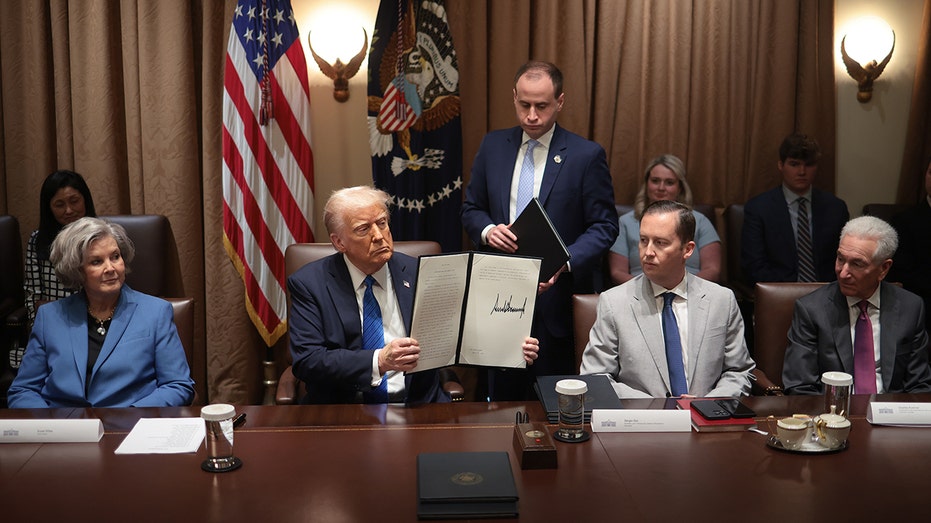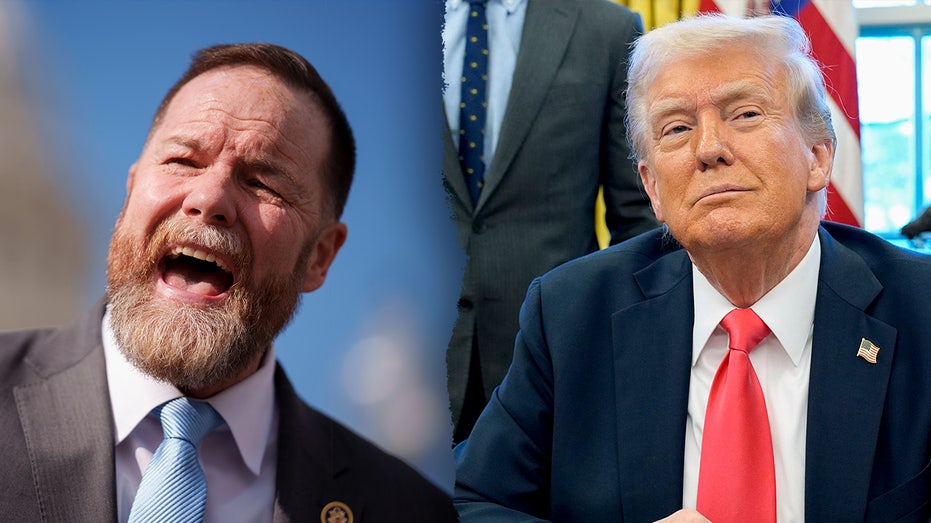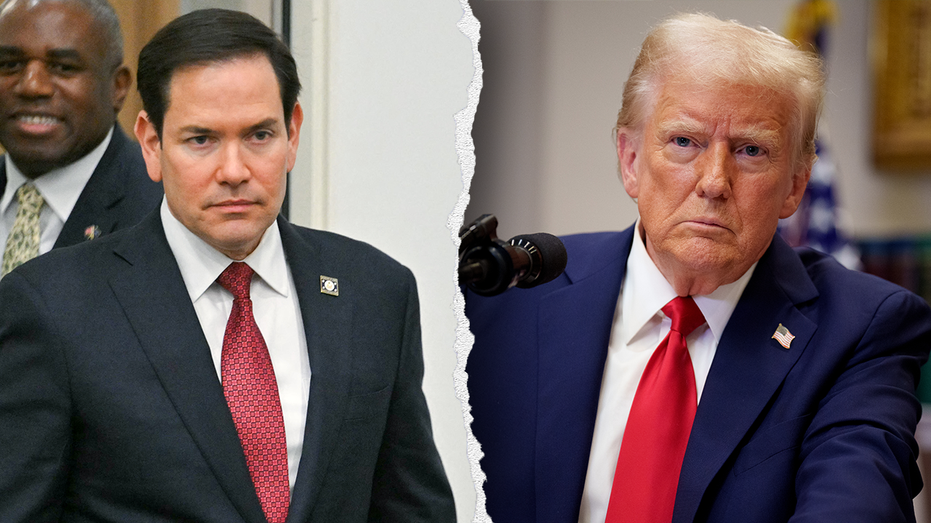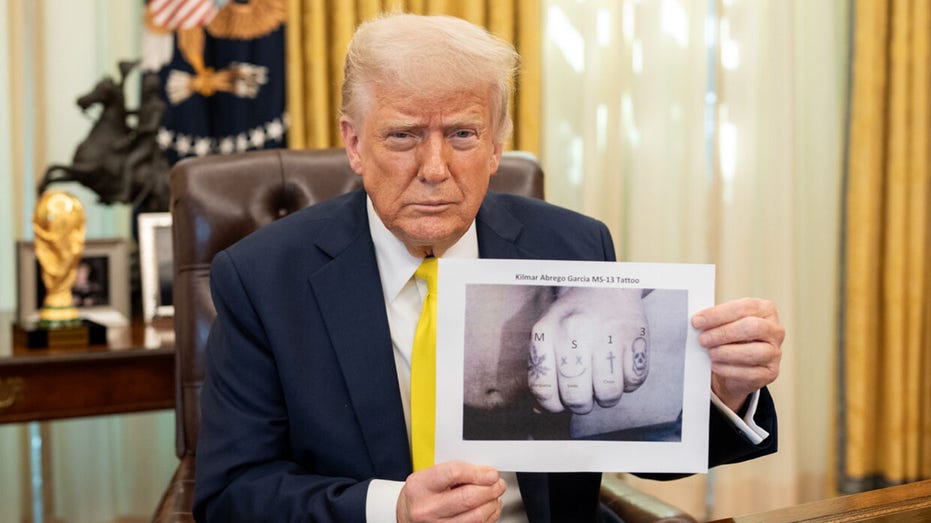An executive order signed by President Donald Trump last week seeking to overhaul the nation’s elections now faces two legal challenges, one of them by top Democrats.
The Democratic National Committee, the Democratic Governors Association, and Senate and House Democratic leaders filed a complaint of their own after the first lawsuit Monday afternoon was filed by Campaign Legal Center and the State Democracy Defenders Fund.
Both lawsuits filed in the U.S. District Court for the District of Columbia ask the court to block Trump’s order and declare it illegal.
“The Executive Order seeks to impose radical changes on how Americans register to vote, cast a ballot, and participate in our democracy—all of which threaten to disenfranchise lawful voters and none of which is legal,” the Democrats’ lawsuit, filed by the Elias Law Group, alleges.
HOUSE DEM TO BLOCK VA NOMINEES TO PROTEST DOGE CUTS
The suit takes grievances about mail-in ballot receipt deadlines, the “President’s own design preferences” on “congressionally mandated voter registration forms” and “the President’s unlawful effort to upturn the electoral playing field in his favor and against his political rivals.”
Lawyers warned some of Trump’s demands in the order, including a proof-of-citizenship requirement for voter registration and new ballot deadline rules, may violate the U.S. Constitution, according to The Associated Press.
TRUMP, EYEING 3RD TERM, KEEPS ATTACKING ELITE INSTITUTIONS – AND MANY ARE CAVING
“We believe that this Executive Order is the farthest-reaching executive action taken in the history of the republic to Secure our Elections,” Trump said in a Truth Social post on March 25, the day he signed it, during an ambassador meeting in the Cabinet Room of the White House.
The order also asserts power that legal experts say the president doesn’t have over an independent agency. That agency, the U.S. Election Assistance Commission, sets voluntary voting system guidelines and maintains the federal voter registration form, the AP reports.
The DNC’s lawsuit highlights the role of the government’s controversial cost-cutting arm, the Department of Government Efficiency (DOGE).
It alleges the order’s data-sharing requirements, including instructing DOGE to cross-reference federal data with state voter lists, violate Democrats’ privacy rights and increase the risk that they will be harassed “based on false suspicions that they are not qualified to vote.”
Top election officials in some Republican states have praised Trump’s order, saying it could inhibit instances of voter fraud and give them access to federal data to better maintain their voter rolls.
If the courts determine the order can stand, the changes Trump wants may cause some headaches for election administrators and voters. State election officials, who have already lost some federal cybersecurity assistance, would have to spend time and money to comply with the order, including potentially buying new voting systems and educating voters of the rules.
The proof-of-citizenship requirement could also cause confusion or voter disenfranchisement because millions of eligible voting-age Americans do not have the proper documents readily available.
In Kansas, which had a proof-of-citizenship requirement for three years before it was overturned, the state’s own expert estimated that almost all the roughly 30,000 people who were prevented from registering to vote during the time it was in effect were U.S. citizens who had been eligible.
The Associated Press contributed to this report.
Latest Political News on Fox News Read More




